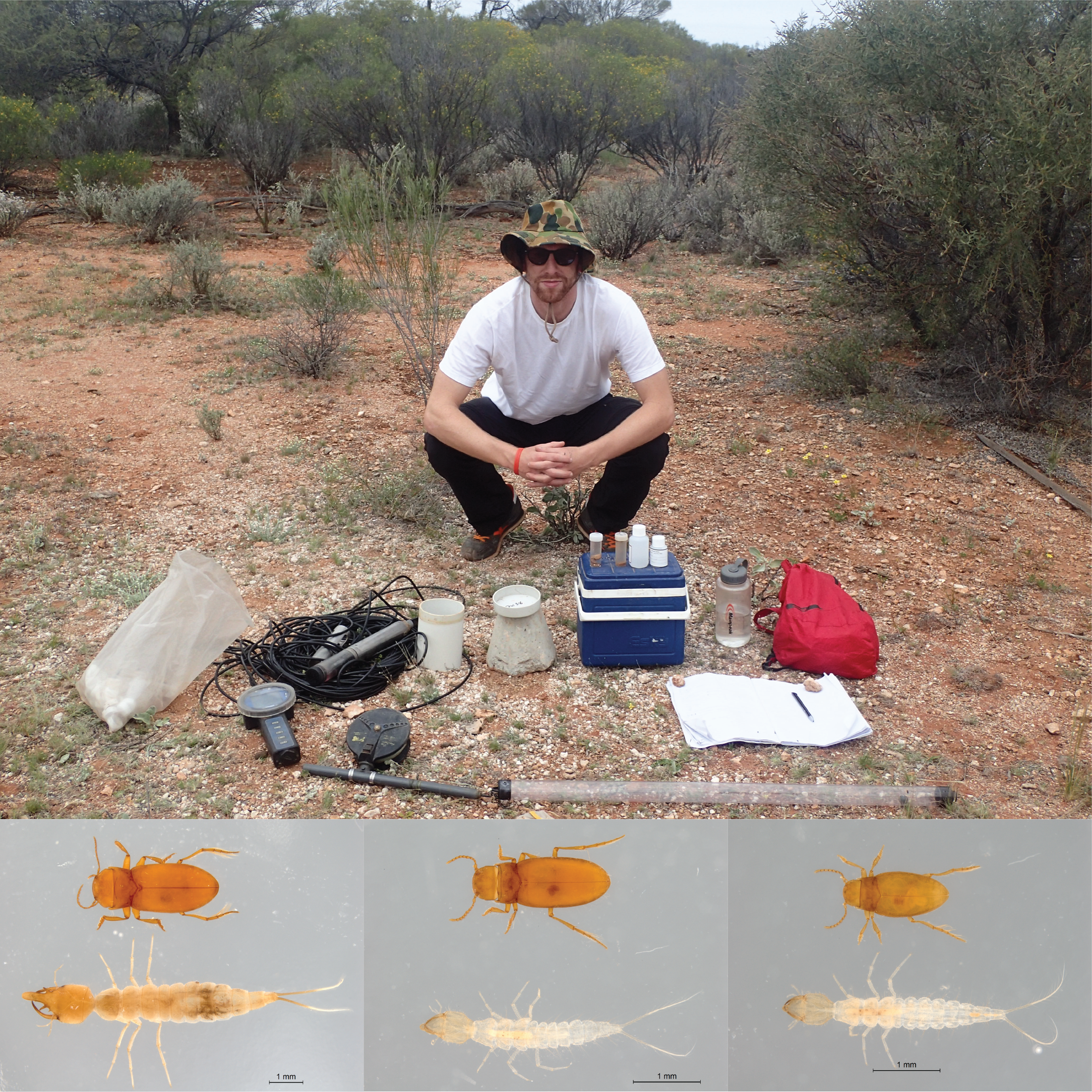Key Points
- Thirty per cent of Australia's groundwater supply is deteriorating in terms of amount and quality, according to experts.
- Underground aquifers are heavily relied on for irrigation and in some cases, drinking water via wells and bores.
- Scientists have shown the health of groundwater directly affects the health of ecosystems such as wetlands above ground.
Australia's Great Artesian Basin, the world's largest underground water reserve, lies beneath parts of the Northern Territory, Queensland, South Australia and New South Wales and is the continent's most important source of water for irrigation and in some cases, drinking water.
It contains enough water to fill Sydney Harbour 130,000 times.
"Groundwater is a fundamental resource for life on Earth," says Dr Mattia Saccò, senior lecturer in aquatic ecology at Curtin University in Perth.
Groundwater is percolates down and collects in underground rock fractures and between grains of sediment, he explains.
It is used to irrigate 40 per cent of all crops on Earth and provides around half of the world's drinking water.

Half of the world's drinking water comes from underground reserves and is accessed via bores and wells. Credit: Gary S Chapman/Getty Images
Despite its importance, Australia's groundwater is "threatened by multiple stressors" with one-third "declining" due to a range of human factors including reduced rainfall due to climate change, over-extraction via bores on private properties, contamination, salination and mining activities, according to a
This decline in both the amount of groundwater and its quality can lead to tree deaths, the drying up of wetlands and water quality problems above ground.
Research by Saccò and his small team in the Subterranean Research and Groundwater Ecology (SuRGE) group has also shown a direct link between the quality of groundwater ecosystems and those above ground.

Dr Mattia Saccò, senior lecturer in aquatic ecology at Curtin University in Perth, at work, and below: some species detected in Western Australia groundwater. Credit: Supplied
A threatened ecosystem - here's how you can help
Groundwater, both in Australia and around the world, is under threat, according to Saccò.
"As the world's population grows, the demand for these resources will inevitably increase," Saccò explains.
He says there are simple ways individuals can help preserve groundwater.
For example, people should choose endemic species of plants for their yards as these require less watering than exotic, introduced species, he says.

Planting native, endemic species in gardens greatly reduces demands on water, says Saccò. Source: Pixabay / Pixabay (CC0)
"We should (also) avoid unnecessarily contaminating the soil with excessive fertilisers, which would eventually percolate inside the aquifer and (diminish) the overall groundwater quality," he says.
In essence, we should consider groundwater as our most precious, publicly accessible source of water, and treat it accordingly.Dr Mattia Saccò

Reduced rainfall due to the effects of climate change impact heavily on Australia's groundwater supplies, according to scientists. Source: Moment RF / Vicki Smith/Getty Images
"If we consider water as life, groundwater represents the insurance policy for life on Earth."
This threat is even more serious in arid areas of Australia, he says.
"In Perth and Mandurah, about 70 per cent of the water consumed comes from groundwater," he adds.

Due to scarce rainfall and an arid environment, Perth derives 70 per cent of its water from groundwater. Source: AAP
What lives in underground water?
In addition to their role as a water resource for humans, these groundwater basins are also home to a rich fauna.
"About 30,000 species of underground aquatic life have been catalogued, which is close to the total number of fish in the world," Saccò says.
These species have evolved over thousands of years in very specific conditions, with no light and fewer nutrients compared to those found in lakes and rivers, he explains.

Astyanax mexicanus, Characidae or blind cave fish. Credit: Wikimedia
"One of the most charismatic of these animals is the proteus, an aquatic salamander with an extraordinary ability to fast: it can survive without food for up to 96 months and can live for more than 100 years," Saccò says.

The Proteus anguinus is an aquatic salamander. It is blind, while its other senses, particularly smell and hearing, are acutely developed. Credit: gremlin/Getty Images
It is even said that amphipods are the "architects of the underground".
"They dig tunnels in the subsoil that connect groundwater to surface water, so these animals help the water to flow," Saccò explains.
"An intact groundwater ecosystem is crucial for the conservation of surface biodiversity. One of the most striking results of our research was that it demonstrated the interrelationship between these environments."




